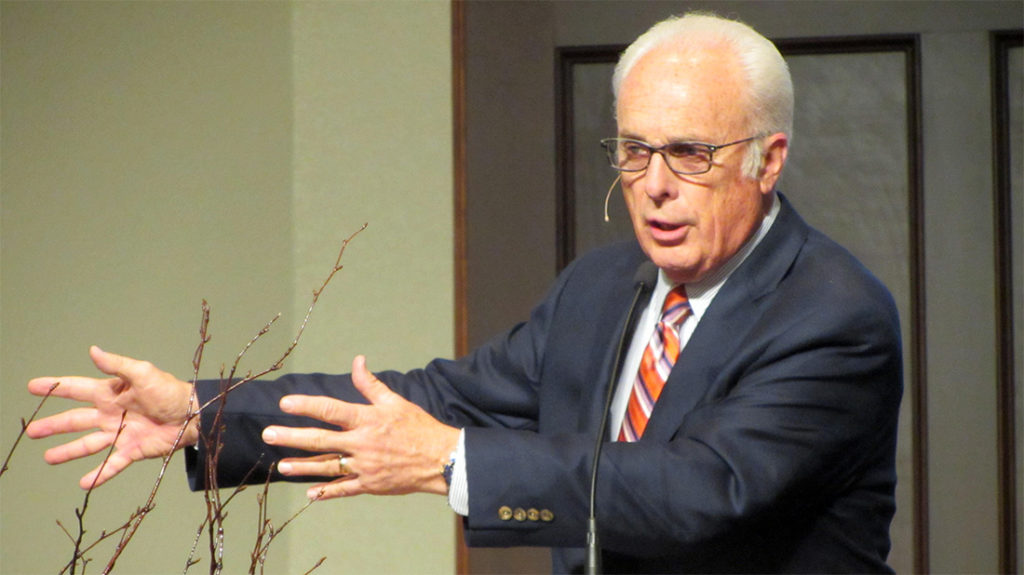It seems like every couple of years there is a new book that comes out on leadership. Most of them are oriented to the secular world and focused on leadership from a business perspective. Even many written by Christians tend to be very general in their focus. Not that there is anything wrong with these books, it’s just that they seldom have as their primary focus, leadership in the Church based on Scripture. What amazes me is how many church leadership books are out today with very few actually dealing with Paul’s writings in 1 & 2 Timothy and Titus. After all, these are called the pastoral epistles, and are Paul’s instructions to two young men seeking to lead two different churches.
I am not able to give you an exhaustive list of principles that will make you a great leader. But when the Word of God is my foundation, personal experience isn’t the only teacher. In this second letter to Timothy, principles of leadership are laid out by the Apostle Paul for all of us to see. Let’s look at them and see what we can glean concerning church leadership.
In order to fully comprehend the Apostle’s words to Timothy you must remember that Paul was staring death in the face. He knew that his time on earth was nearing its end. Also, in 2 Timothy 2:8, Paul says that he is in chains as a criminal. The word for “criminal” refers to someone who has committed serious crimes, not petty thievery. One charged with this type of crime could expect only the toughest of sentences and the harshest of punishments.

In 2 Timothy 4:6-8 Paul says that he is “…being poured out as a drink offering, and the time of my departure has come.” He takes some of that precious time to pen this letter to his protégé, Timothy, his faithful ministry partner for years. Paul exhorts, instructs, commands, and reminds Timothy of his high calling as a shepherd in the church of God. I propose to give you eight principles from 2 Timothy on church leadership, four here and the next four later. A disclaimer, this list is not exhaustive; you could probably add many more to the list. My prayer is that the ones we cover today will be of some profit to you.
Four principles of Church Leadership from 2 Timothy
1. Good Leaders Will Take a stand for the Gospel of Christ Jesus (2 Timothy 1:8-12).
Paul was suffering in prison because of his proclamation of the gospel of Christ Jesus. Even so, he declared that he was first and foremost a captive of Jesus Christ (Ephesians 3:1). No matter what obedience cost him, he was sold out to Christ. Paul encourages Timothy not to be ashamed of his association with Paul or of the gospel for which Paul was in chains (1 Tim 1:8). He says to Timothy, “join with me in suffering for the gospel…”(2 Timothy 1:8). Timothy would suffer for his identification with the Gospel as a believer and for his proclamation of it as a shepherd in the church. This was eventually borne out as Timothy did suffer prison for the sake of the Gospel (Hebrews 13:23). Suffering is an important theme woven throughout the fabric of this epistle (1:12, 2:3, 2:9-10, 3:10-12, and 4:5).
Many believers around the world face hardship and prison for proclaiming the gospel. In the Western world the cost right now is different. The so called intellectuals of this world will call you a fool for believing in something so arcane and divisive as the Bible (1 Corinthians 1:18). There may be other costs as well. Eventually many churches may face ostracism and lose their tax exempt status because of their stand for the Bible’s condemnation of sin.
No matter how the suffering occurs, just know that it will in fact fall upon you. It may be financial, verbal, or in the form of outright hostility, but it will happen. Remember that when you do suffer (and you will) that you are in good company. If your spiritual forefathers suffered for the gospel, then why would you expect anything less. Suffer hardship as a good soldier who looks to victory, an athlete who looks forward to his prize, and the farmer who waits for his crops (2 Timothy 2:3-6). All of these suffer hardship in the present while awaiting a future reward.
2. Good Leaders Will Focus on the fact that they are suffering for Christ and His People (2 Timothy 2:8-13).
Paul tells Timothy in 2 Timothy 2:8, “Remember Jesus Christ…” This is an imperative command calling for habitual action–continual focus on the person of Jesus Christ and His sacrificial work on our behalf. Paul wants Timothy to keep Christ at the forefront of all his thoughts. Even though Timothy may face intense hardship because of his faith, he must remember Jesus’ deity and His sovereignty over all aspects of life. Keeping Jesus at the forefront of his thoughts, remembering the suffering He went through as a man, and His victory over death as God, would sustain Timothy through the dark times in his life both as an individual and as a church leader.
Paul also says in 2 Timothy 2:10 that he endures all things for the sake of the chosen. To endure is to have a patient steadfastness that does not flee trouble. Paul endures the suffering, the hardship, the beating, the robbers, the cold nights, the danger (2 Corinthians 11:23-27.) all for the sake of reaching the lost. The chosen he speaks about in 2:10 are those that have not yet heard the Gospel. Paul wanted Timothy to remember Christ Jesus and those that had not yet heard the gospel even as he considered the suffering that he would certainly face.
Good leaders will follow the direction of the Apostle Paul and not lose heart in the midst of great suffering for the Gospel. Not only is Christ the example of suffering, He is the Sustainer through our suffering and the goal of a life well lived. A good leader will keep his focus, not on the opposition that he faces but on those that need the grace of God.
3. Good Leaders Hold Fast to Sound Doctrine (2 Timothy 1:13-14).
In 2 Timothy 1:13-14, Paul tells Timothy to retain the standard which he had heard, and guard the treasure which had been entrusted to him. The word for retain means “to hold fast to.” Paul commands Timothy not to let go of the standard of sound words that are true, accurate, without error and proclaim and explain the Gospel. Timothy has the very words of God and has heard the Apostle Paul preach them for many years now. Timothy is to hold fast to this standard with faith toward God and love toward his fellow man.
Paul also tells Timothy to guard the treasure that has been entrusted to him. Not only is Timothy to hold fast to the standard that he has heard, but he is to guard that which has been given to him by Paul. There is an urgency to Paul’s command here. Timothy must quickly guard the word from those that seek to tear it down by attacking Timothy’s life. The standard means nothing if one does not obey it on a daily basis. Living out this standard can only be accomplished as one walks by the power of the Holy Spirit. A consistent life demonstrates the power of God and the truthfulness of His word.
A good leader is to hold fast to sound doctrine and guard it from those that teach error. In this world of few absolutes, God has given us His word. It is everything that we need for life and for godliness (2 Peter 1:3). Any convictions we have must come from the Word of God. A biblical leader also guards the truth from those that put forth error. Think about how many Seminaries have gone “liberal” in the last 100 years? This didn’t just happen overnight. They slowly compromised on the inerrancy and inspiration of the Word of God until they became what they are today…the blind leading the blind. A good leader guards that which has been entrusted to him.
4. Good Leaders will Duplicate Themselves (2 Timothy 2:2).
Paul tells Timothy to take the things that he has heard from him and entrust them to faithful men to do likewise. What a powerful picture. Timothy has been entrusted with the most important treasure of all, the word of God, and he is to commit it to others who would then do the same.
Teachers today are links in a chain, an apostolic chain that stretches back to Timothy and Paul himself. Timothy is to invest wisely and strategically to ensure the Gospel continues on accurately to the next generation. Paul had spent years with Timothy, both as an example and as his teacher. He had poured his life into the young man. It was now Timothy’s turn to do the same with men in his church.
It is the duty of a church leaders to select men who have proven themselves faithful and then give them sound teaching so they may in turn do likewise. This is the way that sound churches survive over long periods of time. In order for a church to survive as a thriving Bible believing fellowship there must be a direct and purposeful plan to train up younger leaders in the body.
Here are four of the eight principles (four more coming soon) on what makes a good church leader based on the Apostle Paul’s second letter to Timothy. A truly Biblical leader: takes a stand for the Gospel of Christ Jesus, focuses on for whom they are suffering, holds fast to sound doctrine, and duplicates themselves. In the midst of a world clamoring for truth, here in 2 Timothy we have a blueprint for Shepherds in the church. Leadership is often a hard and lonely road. How great is it that you don’t have to figure it out for yourself. The hard question for you is, “Are you a 2 Timothy type of leader?”
We shall look at the remaining four leadership principles from 2 Timothy in my next blog.





